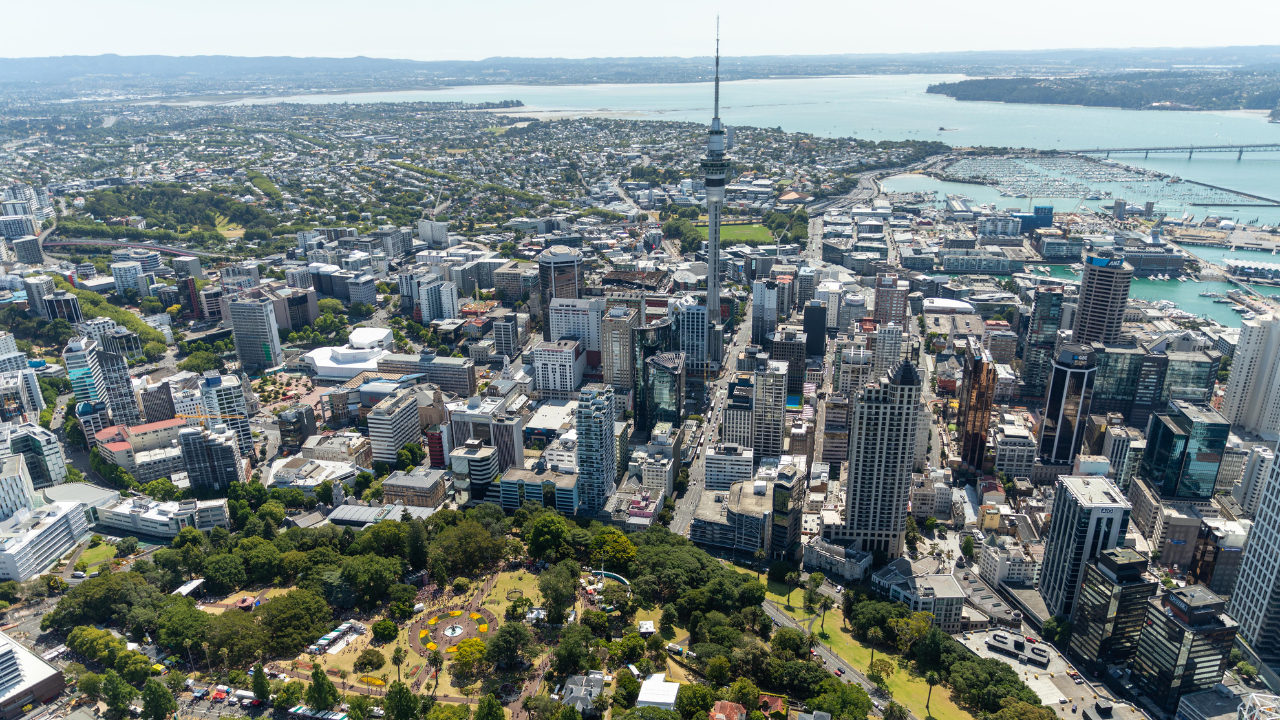As the portal to Aotearoa New Zealand’s burgeoning economy, Tāmaki Makaurau Auckland is in a win–win position, now that the free trade agreement with the European Union is in force.
On 1 May 2024, the New Zealand-European Union Free Trade Agreement (NZ–EU FTA) came into force, having been signed in 2022 after four years of negotiations.
One of the world’s most lucrative markets, home to nearly 450 million consumers, the European Union (EU) is New Zealand’s fourth-largest trading partner, with two-way goods and services worth more than NZ$20 billion in 2023.
The NZ–EU FTA adds to a list of more than a dozen New Zealand trade deals serving both Asian and Western economies, including Hong Kong, Malaysia, Thailand, Japan, Korea, Singapore, the United Kingdom and China. New Zealand also has a full and free trading relationship with Australia (with whom the EU has yet to ratify a trade deal).
Tariffs down, quotas up
Prior to the deal, our exporters paid tariffs on goods entering the EU. From May, 91 per cent of these goods (including horticultural produce, wine, manuka honey, and almost all fish and seafood) have had their tariffs fully eliminated; with further tariff reductions to be staged over the next seven years, that overall percentage will rise to 97, with many exports enjoying a zero tariff. There are quota increases, too, for sheep meat, beef, butter, milk power and cheese.
As well as traded goods, there are benefits, too, for service providers, in sectors such as sports and recreation, aviation, telecommunications and international maritime services.
In all, New Zealand exporters are predicted to save some $100 annually on tariff reduction or elimination. And according to estimates, by 2035 the FTA could boost New Zealand exports to the EU by up to $1.8 billion annually.
Boost for foreign investment
For Tāmaki Makaurau Auckland and New Zealand, a major plus of the FTA is that it smooths the path for foreign investment. The EU is one of the second-largest sources of foreign direct investment in New Zealand, with stocks of EU’s Foreign Direct Investment (FDI) amounting to over NZ$14.5 billion in 2020.
For certain foreign investments, New Zealand imposes a monetary screening threshold that requires the investor to apply for consent. The FTA doubles this threshold from $100 million to $200 million. This greatly streamlines the process and also puts EU investors on the same footing as those from territories with whom New Zealand has signed trade deals, such as the United Kingdom (the NZ–UK FTA came into force in May 2023).
The EU ambassador to New Zealand, Lawrence Meredith, who has called the FTA “a win–win for both sides”, is upbeat about the potential for foreign investment in Aotearoa, particularly in the areas of green transition (energy, transport), artificial intelligence and infrastructure. This aligns with the government’s goals for a new National Infrastructure Plan. According to one estimate, EU investment into New Zealand could grow by over 80 per cent.
It's not all about the money
The benefits of the FTA are much more than merely economic. This is the first ever EU trade deal to enable trade sanctions for breaches of environmental and labour rules. A specific chapter in the deal is geared to advancing Māori trade interests in the EU; it acknowledges the importance of Te Tiriti o Waitangi, and of Māori concepts such as te ao Māori, mātauranga Māori and tikanga Māori. There is also a specific clause on fossil fuels subsidy reform.
So as well as cementing an economic relationship, the deal underscores the values – of democracy, human rights, fair trade, environmental standards and more – shared by New Zealand and the EU. (This may help explain why the trade deal passed through the European Parliament by the largest majority since 2011.)
Auckland’s role pivotal
Generating 38 per cent of New Zealand’s GDP, Tāmaki Makaurau Auckland has a pivotal role to play in the new trade relationship with Europe.
Key primary producers, agribusinesses and ag innovators, from Fonterra and Cargill to AgriTech New Zealand and Plant & Food Research, are headquartered in the region, as are 50 per cent of the country’s 100 largest food and beverage firms. Other strong sectors in Auckland include film production and gaming.
Auckland is one of the first cities in the world to see the new day, granting multinationals round-the-clock access to global markets. Home to the country’s largest airport, seaport and freight operations, Auckland is the country’s prime logistics hub, with over 30 per cent of New Zealand’s container trade passing through its port.
With the new FTA including an annex on the movement of people (intra-corporate transferees, independent professionals, business visitors and contractual service suppliers), Auckland’s diversity serves it well: the region is home to 70 per cent of New Zealand’s Pacific and Asian populations, as well as one in four Māori. In total, more than 180 ethnicities are represented here.
For foreign nationals, Auckland offers a home from home rich in culture and surrounded by natural beauty. Along with locals, too, they will benefit from the elimination of tariffs on EU goods entering New Zealand (ranging from furniture and motor vessels to foodstuffs and footwear).
Find out more
To learn more about opportunities in Tāmaki Makaurau Auckland, get in touch with our team of experts.
